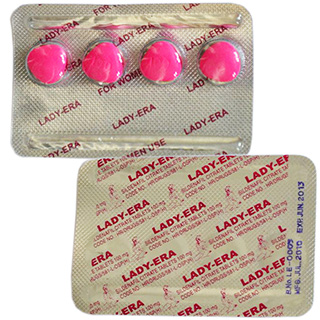Description
Description
Who is XELODA for?
XELODA is used to treat:
- Cancer of the colon or rectum (colorectal cancer) that has spread to other parts of the body. This is called metastatic colorectal cancer (mCRC). XELODA is used as a single medicine to treat mCRC. In medical studies, people lived longer when they took other cancer medicines at the same time that they took 5-fluorouracil (5-FU) and leucovorin. In medical studies, XELODA used as a single medicine was no worse than 5-FU and leucovorin taken together. XELODA did not improve survival compared with these 2 medicines
- Cancer of the colon after surgery
- Breast cancer that has spread to other parts of the body. This is called metastatic breast cancer (mBC). For this kind of breast cancer, XELODA is taken together with another medicine called docetaxel
- Breast cancer that has spread to other parts of the body and has not improved after treatment with other medicines. These medicines include paclitaxel and anthracycline-containing medicine such as doxorubicin
What is the most important safety information I should know about XELODA?
XELODA may increase the effect of medicines used to thin your blood. These medicines include warfarin. It is very important for you to tell your doctor if you are taking a blood thinner. This is because you could have serious side effects.
The effect of the blood thinner could be increased. If you are taking blood thinners and XELODA, your doctor needs to do simple blood tests to find out how fast your blood clots. He or she can change the dose of the blood thinner, if needed. These blood tests should be done more often when you are taking XE
LODA.
Who should not take XELODA?
Do not take XELODA if:
- You are nursing a baby. Tell your doctor if you are nursing. XELODA may pass on to the baby through your breast milk and harm the baby
- You are allergic to 5-FU, capecitabine, or any of the ingredients in XELODA
- Do not take XELODA if you have been told that you don’t have enough of the enzyme DPD (dihydropyrimidine dehydrogenase)
What should I tell my doctor before taking XELODA?
Tell your doctor if you:
- Take a blood thinner such as warfarin (Coumadin)
- Take phenytoin (Dilantin). Your doctor needs to test the levels of phenytoin in your blood more often or change your dose of phenytoin
- Are pregnant or think you may be pregnant. XELODA may harm your unborn child
- Have kidney problems. Your doctor may prescribe a different medicine or lower the XELODA dose
- Have liver problems. You may need to be checked for liver problems while you take XELODA
- Have heart problems because you could have more side effects related to your heart
- Take the vitamin folic acid. It may affect how XELODA works
Stop taking XELODA immediately and contact your doctor right away if you have any of these side effects or any other side effects that worry you:
- Diarrhea — if you have 4 more bowel movements each day than is normal for you or if you have any diarrhea at night
- Throwing up (vomiting) — if you throw up more than once in a 24-hour time period
- Feeling sick to your stomach (nausea) — if you don’t feel like eating and if the amount of food you eat each day is much less than usual
- Pain, redness, swelling, or sores in your mouth (stomatitis)
- Hand-and-foot syndrome — if you have pain, swelling, or redness of your hands or feet that prevents normal activity
- Fever or infection — if you have a temperature of 100.5°F or higher or other signs of infection
If you do have any of the side effects listed above, or if you have other side effects that worry you, your doctor can change your dose of XELODA or stop your XELODA treatment for a while. This may help to reduce the side effects and stop them from getting worse.
What are the most common side effects of XELODA?
The most common side effects of XELODA are:
- Diarrhea
- Nausea
- Throwing up (vomiting)
- Sores in the mouth and throat (stomatitis)
- Stomach area pain (abdominal pain)
- Upset stomach
- Constipation
- Loss of appetite
- Too much water loss from the body (dehydration)
The side effects listed above are more common in patients 80 years and older.
Other common side effects are:
- Hand-and-foot syndrome
- Rash
- Dry, itchy, or discolored skin
- Nail problems
- Hair loss
- Tiredness
- Weakness
- Dizziness
- Headache
- Fever
- Pain (including chest, back, joint, and muscle pain)
- Trouble sleeping
- Problems with your sense of taste
If you are concerned about these or any other side effects while taking XELODA, talk with your doctor.
You may have different side effects if you take XELODA with docetaxel. Please talk with your doctor about possible side effects that may be caused by taking XELODA with other medicines.
What should I do if I am pregnant or am thinking about becoming pregnant?
- XELODA may harm your unborn child. Use effective birth control while taking XELODA. Tell your doctor right away if you become pregnant when you are taking XELODA. Men should use birth control while taking XELODA






